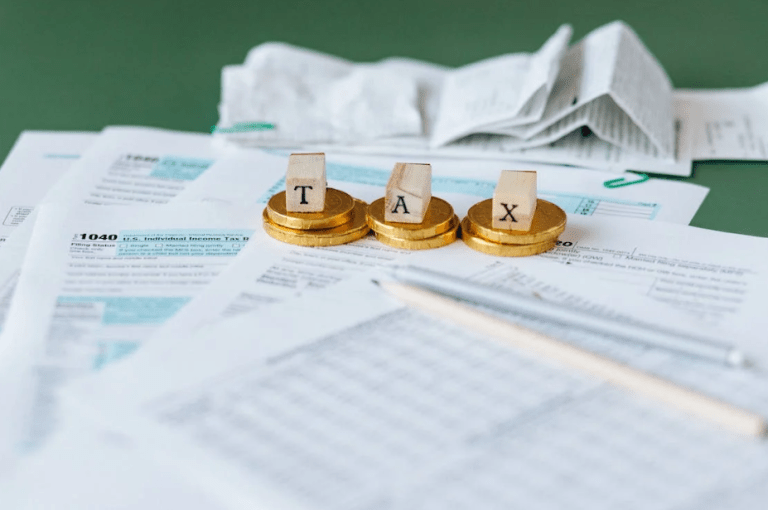Experiencing a significant financial setback can be a life-altering event. Whether it’s due to job loss, medical emergencies, or other unforeseen circumstances, such setbacks can leave one feeling overwhelmed and uncertain about the future.
However, rebuilding your finances is possible and a journey that can lead to greater financial resilience and wisdom. In this article, we’ll explore the steps you can take to regain control over your finances and move forward with confidence. If you’re struggling with tax-related issues, there are various options to resolve your tax bill that can provide relief and assist in your financial recovery.
Assessing the Damage
The first step in rebuilding the ruined finances is to assess the present state. This involves evaluating the impact of the setback in terms of the injury it has caused, physical or otherwise. Assemble all the documents relating to money, such as statements of accounts, credit cards, receipts, invoices, and any documents that may concern the case. This will assist you in defining your sources of income, the expenditure list, liabilities, and resources.
The assessment process should be sincere and honest to ensure that the candidate being assessed is given a true reflection of their strengths and weaknesses. This means you should determine which debts you must pay most attention to and which assets you can sell if needed. This may sound uncomfortable, but it is critical to developing a viable strategy to navigate future progress. It is well understood that identifying one’s position is of paramount importance, especially when it comes to finances.
Saving Money and Preparing the Budget
After learning about your financial status, the next thing to do is to develop a budget plan. A budget enables you to make better financial decisions by controlling your money flow; in other words, it allows you to monitor your income and expenditures.
This should be done to list all the possible sources of income and categorize the various expenses we come across in life as compulsory or luxury expenses. We are talking about necessities of life, including housing, electricity, water, food, and other basic requirements that may include fare. Luxuries include extra food or eating out, fun activities, and other things one would like but only sometimes need.
One suggestion you should follow to the letter is to cut your expenses down to the barest minimum. This may imply drastic measures that you are willing to let go, such as selling a house, letting go of a car, or eliminating extra spending. That dollar saved can assist you in paying off the balance faster and setting aside some money for use in an emergency.
Increasing Your Income
However, this is only half of the equation since one must also learn to cut costs. Earning more money can go a very long way in ensuring you get back on your feet financially. Invest in getting a part-time job or freelance work as a backup for your primary income. Search for ways to create income from activities that you enjoy or things that you are good at. For example, if you have a skill in writing, designing, tutoring, etc., these could be turned into some extra income.
Another way is to invest in your education or skill-building. Through these new qualifications or skills, you can demonstrate an increased value to your employer and earn a better job with better pay. This may take some time and money on the part of the organization in the beginning, but it can later be a sure way of earning more money.
Dealing with Debt
Financial loss can sometimes be hard to bear, especially when dealing with debt. One important aspect of getting your finances back on track is paying off your financial obligations in a timely manner. Begin by targeting those debts with the highest interest rates, such as credit card bills, which, when paid, tend to accumulate faster. Most of these debts can be settled at an agreeable price through early payments, thus saving a lot of money through reduced interest rates.
If you realize that you are having difficulty effectively handling your debts, then it is wise to consult a credit or financial expert. These specialists can help you decide what type of debt consolidation to choose, how to negotiate with creditors, and other valuable tips on paying off your debt. Sometimes, it is possible to consider other avenues, such as the IRS Fresh Start Program, which can help alleviate the pressure of debts, including taxes.
Building an Emergency Fund
Another crucial aspect that is often ignored in the process of financial recovery is establishing an emergency fund. This fund is an emergency fund, which helps to avoid certain deficiencies in liquidities in the future and covers some unpredictable costs. It is likewise advised to set money aside to save three to six months of living expenses. Though this may sound like a rigorous approach to achieve this goal, begin small but add value consistently. Having some money saved is helpful, even if it is not very large; it can help protect a person during an emergency.
Some possible measures include establishing transfers to an automatic savings account to make saving easier. You should not approach the process of contributing to an emergency fund as optional; you should approach it as a fixed expense, just like a bill. Although it is particularly applied to the poor, over time, it will assist in creating a strong financial buffer.
Long-Term Financial Planning
When it comes to restoring financial stability, people do not only focus on recovery; they also think about the future. Well-defined and realistic financial objectives and targets should be set to be achieved, together with a strategic way of doing it. Whether it is accumulation for retirement, purchase of a house, or children’s schooling, having clear objectives will help direct you and keep you focused.
Savings and investment are another important strategy that has been widely discussed by experts on successful long-term financial planning. To reduce the risk of poor returns, invest in areas that diversify risk and take on an array of growth prospects. It was highlighted that one should seek an investment expert’s services and develop an investment plan that suits one’s investment horizon and risk profile.
Conclusion
As we have seen, it is not impossible to repair the damages of an economy after it has faced a significant blow. Regarding the financial position, it is possible to know how much you earn, how much you spend, what you need to cut spending, how to earn more, how to pay off debts, how to save money for emergencies, and how to plan for the future. Just like in any other process, recovery requires patience and focus. This article reminds you that there is light at the end of the tunnel when overcoming financial difficulties.







